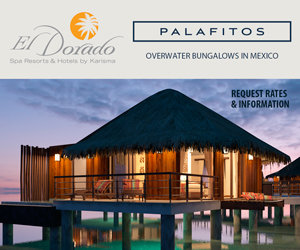Photographer - Permits?
-
-
Posts
-
By zasaanthadark2535 · Posted
Just finished building and was lost on heating... [url=https://rjadom.ru/]this site[/url] helped a lot with practical examples. -
By aolivijnroz2060 · Posted
[b]Сайт Кракен – лучшая торговая площадка Даркнета [/b] Сервис Kraken – лучший магазин Даркнета, где продаются разные позволяющие расслабиться препараты, фальшивые документы и деньги, можно заплатить за доступ к чужим личным данным и аккаунтам. Клиентам обеспечивается полная анонимность, а количество магазинов всё время растёт. [b]Покупки на Кракене[/b] На Кракене можно найти такие предложения: • Несколько видов наркотиков – от марихуаны и стимуляторов до ЛСД и кокаина. • Обналичка Bitcoin. • Взломанные аккаунты ВПН. • Услуги хакеров. • Паспорта, удостоверения, водительские права. • Банковские карты и симки. • Фальшивые купюры – в основном, 1000, 2000 и 5000 руб.. • Оборудование и приборы – от скрытых камер и жучков до флешек для взлома. На сайте можно и найти работу. Например, стать закладчиком, химиком или гровером. Можно стать продавцом. [b]Преимущества сервиса[/b] Причины для выбора площадки Kraken: • Полная анонимность клиентов и владельцев магазинов благодаря расположению в сети Onion. • Применение криптовалют в качестве денежной единицы. Это гарантирует анонимность всех транзакций. • Доступ к покупке сразу после оплаты. Закладки уже доставлены – нужно только забрать. • Минимальный риск мошенничества. Проблемы можно решить обращением в поддержку сайта, доступную 24 часа в сутки. • Система рейтинга, которая позволяет сразу отсортировать лучшие магазины. • Доставка в разные города РФ и соседних странах. Список доступных мест содержит сотни наименований. Клиентам сервиса можно бесплатно использовать дополнительные услуги. Круглосуточно они могут получить консультацию у юриста или нарколога. А если появились проблемы – обратиться в техподдержку, которая тоже отвечает круглосуточно. Ещё одна особенность сервиса – собственный форум. Вход из расположенной вверху панели сайта. На форуме есть основные правила, новости и информация от других посетителей. А ещё результаты площадки и раздел для общения доставщиков товара. [b]Способы перейти на Кракен[/b] Сервис, который продаёт психоактивные вещества и поддельные документы, запрещён контролирующими службами. И зайти на него, обычным способом не выйдет. Для доступа следует использовать зеркало, браузер Тор или VPN-сервис. Сервис ВПН – вариант, вариант, позволяющий обходить блокировки сайтов. В том числе – на площадки в Darknet. Преимущество метода – защита связи, возможность изменения данных входа только в браузере или всего компьютера. Недостатки – замедление скорости и небольшой размер бесплатного трафика. Второй способ – специальный браузер Тор. Чтобы зайти на Кракен понадобится специальная ссылка, заканчивающейся на .ONOION. Плюсы – отсутствие оплаты и принцип «луковичной маршрутизации», недоступный посторонним IP и отсутствующая история посещений. Минус – сравнительно медленный доступ. Зеркала сайта – тот же сайт, который расположен по другому адресу. Отсутствуют отличия от основной страницы. Есть возможность запуска в обычном браузере. Зеркальные версии будут работать, даже если временно недоступен официальный сайт. Недостаток зеркал – трафик не скрывается, а посетитель может попасть на фейковые страницы. Потому список зеркальных версий следует брать на надёжных сайтах. Есть такой перечень на наркошопе Kraken https://kraken-v2tor.info/magazin-kraken-v-telegram.html и тематических форумах. [b]Регистрация [/b] Чтобы пользоваться сайтом нужно пройти регистрацию. Это позволит совершать покупки, использовать форум и дополнительные услуги. Для регистрации нужно выполнить несколько несложных действий: 1. Зайти на сайт и указать проверочный код. 2. В форме регистрации ввести логин, пароль и имя. Логин – английскими литерами. Имя вводится и на русском. 3. Завершить регистрацию и подтвердить согласие с требованиями площадки. После регистрации идентификаторами можно пользоваться для входа в кабинет. Здесь показываются данные о заявках и оплате, предложениях скидки, настройки аутентификации. [b]Совершение сделки на сайте[/b] Совершить покупку на сервисе Kraken можно за несколько простых шагов: 1. Указать населённый пункт в выпадающем списке. По умолчанию там стоит место, выбранное при первом входе. Можно указать метро и район города. 2. Найти нужную категорию в меню слева. Указать вариант доставки – например, закладку или прикоп. 3. Познакомиться со списком доступных магазинов. Выбрать подходящий вариант и перейти на его страницу. 4. Познакомиться с отзывами. Если покупателя всё устраивает – перейти к покупке. 5. После перехода к форме заказа указать подходящий вариант. Это может быть Биткоин, карту или телефон и даже игру в рулетку. 6. Получить адрес клада и взять товар в указанном городе и районе. 7. Написать отзыв, чтобы другие посетители знали, что товар качественный – или были проблемы. 8. Запомнить магазин в «Избранное» чтобы было проще заходить из профиля. Покупая товар, стоит познакомиться с особенностями сделок. При появлении проблем покупатели могут открыть спор где будут участвовать админы. Правда, в первый раз купить можно только на криптовалюту BTC. Если выбран вариант «рулетка», открывается доступ к игре. Это даёт шанс заплатить меньше, делая ставки на поле из 100 клеток. Ещё один вид экономии – купон. Он подходит для оплаты не больше 50процентов стоимости покупки. [b]Гарантии отсутствия обмана[/b] Обращение на Кракен позволяет рассчитывать на качество продукта. Показать клиентам, что вещества соответствуют требованиям сайта, продавец может, заказав сертификацию. При прохождении проверки сведения о сертификате будут показаны вверху карточки. Гарантия отсутствия обмана – возможность подтвердить заказ в течение 24 часов. Когда покупатель убедился, что клад на месте, он закрывает сделку. Если возникли проблемы – можно открыть спор. Когда виноват продавец, средства будут возвращены клиенту. У магазина ухудшается репутация, а частый обман приводит к бану. Поэтому некачественного товара на торговой площадке практически нет Отзывы kraken shop Kraken маркетплейснарковалютная наркомаркет Kraken Рынок Кракен наркорынок Кракен в анонимной сети kraken market резервный адрес Kraken даркнет маркет Долгопрудный Площадка Кракен в тор Kraken даркнет маркет Сыктывкар Kraken даркнет маркет Арзамас Kraken даркнет маркет Владимир Кракен Казан Читаева магазин Kraken даркнет маркет Севастополь наркорынок на Kraken Веб-сайт Кракен Kraken трейдинг Магазин Кракена Kraken наркорынок Кракен сайт Москва как войти на сайт Кра?кен официальный -
By Jamestoila · Posted
Очень интересная тема, спасибо за полезную информацию! Если кому-то близка тема шаманизма, энтеогенов и растений силы — рекомендую заглянуть на один интересный ресурсКто-нибудь пробовал шаманский табак мапачо или ритуал с камбо? Есть хороший ресурс с описанием этих практик — [url=https://ayana.asia]синаптолепис кирки [/url]. Хотелось бы узнать ваше мнение! -
Hi everyone! I have been doing lots of research on various wedding venues all around Mexico, my fiance wants a destination wedding and I am happy to have a wedding wherever so long as the vibe is right and guests are happy! I have been seriously looking at Cabo Azul and was trying to find potential costs for them, but only found a page about their wedding costs from 2010. Does anyone have any updated information on costs / reviews they would like to share of this venue? Or advice in general, anything helps. Thanks so much, happy wedding planning to all!
-
Have you ever considered having a wedding inside a bubble? With the current global situation, many couples are looking for unique and creative ways to celebrate their special day while keeping their guests safe. A wedding inside a bubble could provide a whimsical and intimate setting for your ceremony and reception. Imagine saying your vows surrounded by a beautiful bubble filled with twinkling lights and flowers, creating a magical atmosphere for you and your loved ones to enjoy.
-
-
Topics








Recommended Posts
Join the conversation
You can post now and register later. If you have an account, sign in now to post with your account.